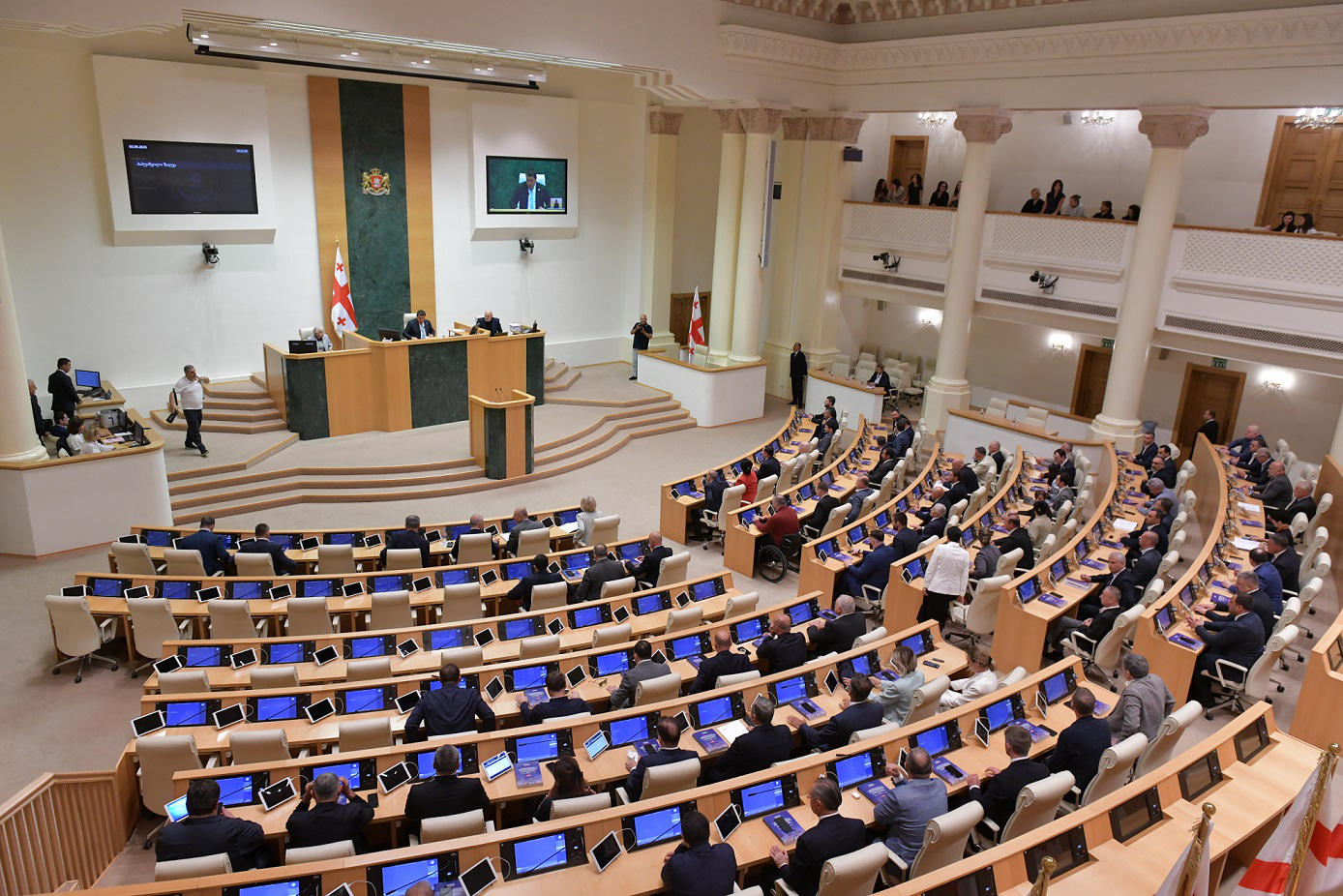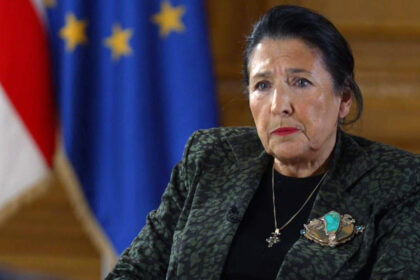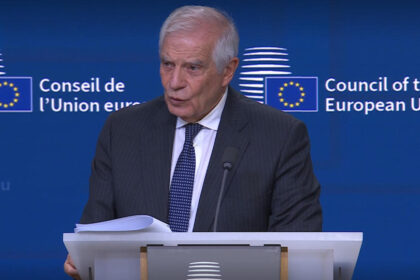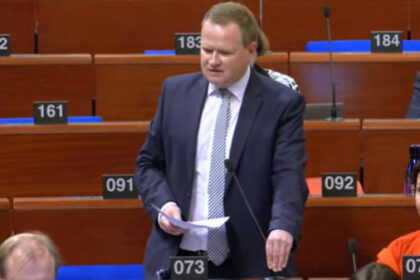Persons convicted of certain financial and economic crimes will be banned from leaving Georgia for 16 years until they compensate the damages caused. A legislative package initiated by the “Georgian Dream” party was adopted by the Parliament in its third and final reading, incorporating several changes, including a specific provision explicitly stating a 16-year period during which a travel ban can be imposed, which was also reflected in the third reading.
Amendments were made to the transitional provisions of the “Criminal Procedure Code” and other related draft laws.
The amendments proposed in the third reading were presented to the Parliament by Archil Gorduladze, Chairman of the Legal Issues Committee.
Changes to the “Criminal Procedure Code” were made following the second reading, in accordance with which the Parliament voted on the issue. Specifically, the legal standard was improved and further refined for individuals obligated to pay compensation to victims, whose property may be confiscated and sold to provide such compensation. These individuals will be able to appeal court decisions regarding property confiscation in the same manner as currently provided for in cases of property seizure under existing legislation. Amendments were made to articles concerning the review of appellate and cassation complaints.
Adjustments were made to articles addressing so-called “white-collar crimes,” requiring convicted individuals to compensate damages under a new procedure. Additions were made to articles covering both intentional and negligent crimes in two specific cases.
Additionally, a principle was proposed that if new regulations are applied to compensate victims, the individual would be prohibited from leaving Georgia, with the duration of the ban tied to the term of conviction. Under the proposed new wording, a specific 16-year period is explicitly stated as the maximum duration for which a travel ban may be imposed.
A key principle is proposed here: the focus is not on the category of the crime or the duration of the conviction derived from it, but rather on the damage caused by the specific offender to the specific victim. The crime category may be minor, but the damage caused could be significant. Therefore, based on the extent of the damage, a maximum period of 16 years is specified.
If the victim refuses compensation or if the offender compensates the damage, the travel ban measure will, of course, be lifted before the end of this period.
Transitional provisions have been adjusted. These provisions apply to ongoing cases or those under investigation. The proposed wording states that if a crime was committed before the law’s entry into force but no investigation has been initiated by the time the law takes effect, individuals covered by Article 165/4, Part 1, will be obligated to pay compensation to victims, and measures to enforce payment will be applied in accordance with the standard procedure established by this law. As their property is used to compensate victims, a travel ban will also be applied if no investigation has been initiated. If an investigation has started or cases are in the first or second instance, only the travel ban may be applied. If a case is in cassation, neither property confiscation nor a travel ban can be applied, which has its own logic. Since the investigation is complete, investigative authorities no longer have the opportunity to fully identify all properties and approach the court to discuss their confiscation, said Archil Gorduladze before the vote, during the presentation of the bill in its third reading.
The new legal regulations will apply to cases where a person is convicted of the following crimes: large-scale fraud; extortion for the purpose of acquiring large amounts of property; misappropriation or embezzlement of another’s property or property rights in large amounts; property damage by deception in large amounts; damage or destruction of another’s property (if the damage exceeds 10,000 GEL); concealment of large amounts of property through sham or fraudulent transactions; abuse of authority; or interference with computer data or systems for financial gain, resulting in significant financial damage.
According to the amendment package, until the convicted person compensates the damage, they will not be able to leave the country for 16 years and must wear an electronic monitoring bracelet. Additionally, by court decision, their property, as well as that of their family members or relatives, may be confiscated.
If a person convicted of financial-economic crimes does not compensate the damage, they will not be allowed to possess funds exceeding twice the subsistence minimum. Transferring money or property to individuals convicted of such crimes will constitute a new offense. Specifically, a new article has been added to the “Criminal Code” addressing “unlawful transactions with a convicted person.” According to this article, a person convicted of financial-economic crimes who has not fulfilled their obligation to pay victim compensation is prohibited from receiving benefits exceeding twice the average consumer subsistence minimum within one month.
Under the new law, receiving benefits exceeding twice the subsistence minimum by such a convicted person will be punishable by a fine or imprisonment for up to three years, while transferring benefits exceeding twice the subsistence minimum will be punishable by a fine or imprisonment for up to five years.
Furthermore, if funds are transferred to bank accounts held by such a convicted person at a bank under the National Bank’s supervision, or if real estate is transferred to them, it will be seized and used to satisfy the victim’s compensation.
Persons convicted of certain financial and economic crimes will be banned from leaving Georgia for 16 years until they compensate the damages caused












